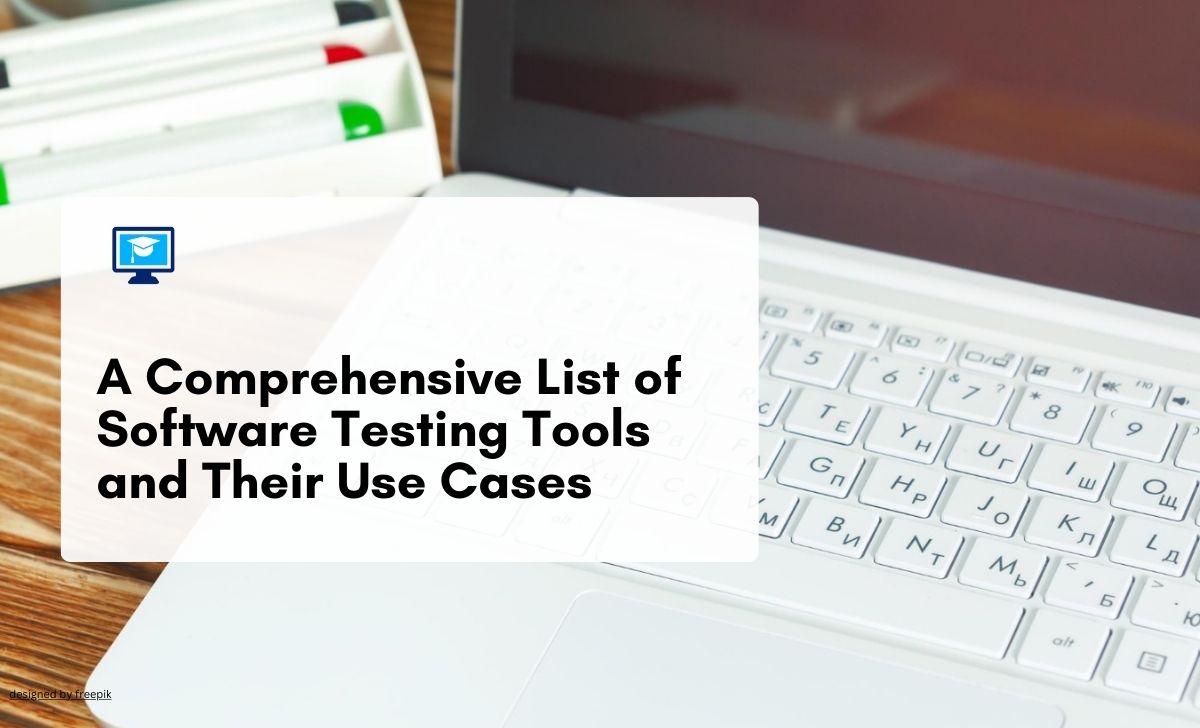The ever-evolving world of software development relies heavily on tools to streamline testing procedures, boost effectiveness, and deliver top-notch applications. Whether you’re a beginner in manual testing or an expert in automation, knowing the tools available and how they work can help your career. This article categorizes essential software testing tools and explains their practical use cases.
1. Manual Testing Tools
Manual testing tools focus on tracking defects, managing test cases, and making sure that workflows are organized.
- JIRA
- Use Case: Used for defect tracking and Agile project management. Testers can log, track, and manage issues efficiently.
- Industries: All industries using Agile or Scrum methodologies.
- TestRail
- Use Case: Helps in organizing and executing test cases. Provides detailed test execution reports.
- Industries: Commonly used in e-commerce and IT services.
- Zephyr
- Use Case: Integrated with JIRA for managing test cases directly within Agile workflows.
- Industries: Suitable for software development companies using Agile.
Why These Matter:
They facilitate manual testing workflows and enhance the collaboration between testers and developers.
2. Automation Testing Tools
Automation tools help testers automate repetitive tasks, ensuring faster and more reliable results.
- Selenium
- Use Case: This tool automates web application testing across browsers and platforms. Most commonly used for regression and functional testing.
- Industries: Banking, e-commerce, and SaaS companies.
- Appium
- Use Case: Automates mobile app testing for Android and iOS platforms.
- Industries: Mobile app development and gaming.
- Cypress
- Use Case: A modern automation tool for web applications with a focus on speed and debugging ease.
- Industries: Web development and SaaS companies.
- TestComplete
- Use Case: Automates desktop, web, and mobile applications. Supports multiple programming languages.
- Industries: Enterprise-level applications and ERP systems.
Why These Matter: Automation tools reduce manual work, improve test coverage, and allow integration with CI/CD pipelines.
3. Performance Testing Tools
Performance testing tools ensure that applications are capable of handling expected loads without compromising their functionality.
- Apache JMeter
- Use Case: Simulates user loads and measures application performance under stress.
- Industries: E-commerce, finance, and gaming.
- LoadRunner
- Use Case: Enterprise-grade tool for load, stress, and scalability testing.
- Industries: Banking, telecom, and large-scale enterprise applications.
- Gatling
- Use Case: Open-source tool for continuous performance testing integrated with CI/CD workflows.
- Industries: SaaS companies and microservices-based architectures.
Why These Matter: Performance tools are important for making sure the system works well under different conditions.
4. Security Testing Tools
With increasing cyber threats, security testing tools ensure that applications are protected from vulnerability.
- Burp Suite
- Use Case: A comprehensive platform for web application security testing. Identifies vulnerabilities like SQL injection and XSS.
- Industries: Fintech, e-commerce, and healthcare.
- OWASP ZAP
- Use Case: Detects common vulnerabilities in web applications. Useful for penetration testing.
- Industries: Startups and medium-sized businesses.
- Kali Linux
- Use Case: Includes a suite of tools for ethical hacking and penetration testing.
- Industries: Cybersecurity firms and large enterprises.
Why These Matter: Security tools are designed to protect sensitive data and ensure compliance with regulations like GDPR and PCI-DSS.
5. API Testing Tools
APIs are the backbone of modern applications. API testing tools are designed to evaluate the functionality, reliability, and performance of APIs.
- Postman
- Use Case: A user-friendly tool for API functional testing and automation. Enables easy creation of test collections.
- Industries: Used across all industries for testing REST APIs.
- SoapUI
- Use Case: Comprehensive testing of SOAP and REST APIs, including security and load testing.
- Industries: Enterprise software and legacy systems.
- Rest-Assured
- Use Case: Java-based library for API testing, popular among developers automating API tests.
- Industries: SaaS and microservices-based systems.
Why These Matter:
API tools enable seamless integration between backend services and frontend applications.
6. Test Management Tools
The purpose of these instruments is to coordinate and streamline the entire testing procedure.
- ALM (Application Lifecycle Management):
- Use Case: Tracks requirements, defects, and testing progress in large-scale projects.
- Industries: Common in large enterprises and government projects.
- Xray for JIRA:
- Use Case: Integrates testing processes into JIRA workflows, enabling better test traceability.
- Industries: Agile development environments.
Why These Matter: Test management tools make it easier to work together and keep track of the testing process.
7. Emerging Tools and Technologies
As technology advances, new tools are being developed to address modern testing challenges.
- Testim.io
- Use Case: AI-powered test automation tool for improving speed and accuracy.
- Industries: AI-driven applications and startups.
- Applitools Eyes
- Use Case: Visual testing tool for ensuring UI consistency across devices.
- Industries: E-commerce, gaming, and SaaS.
- LambdaTest
- Use Case: Cross-browser testing in cloud environments.
- Industries: Web development and design agencies.
Why These Matter:
Emerging tools use artificial intelligence and cloud capabilities to address modern testing needs.
How to Choose the Right Tools
- Identify Your Career Path:
- Manual testers should focus on tools like JIRA and TestRail.
- Automation testers must learn Selenium, Appium, or Cypress.
- Security-focused testers should explore Burp Suite and OWASP ZAP.
- Understand Project Requirements:
- Performance testing tools like JMeter are essential for scalable systems.
- API testing tools like Postman ensure backend reliability.
- Keep Up with Trends:
- AI-powered tools like Testim.io are becoming increasingly popular.
- Cross-browser testing tools like LambdaTest improve test coverage.
Conclusion
Software testing tools hold significant importance in delivering software of superior quality. Understanding their use cases and matching them to your career goals will make you a better tester. Start with tools that match your current job and build up your knowledge as you progress.
Call to Action: Ready to master these tools? Enroll in ITlearn360’ hands-on training programs to accelerate your career in software testing!
https://www.itlearn360.com/courses/software-testing-academy







